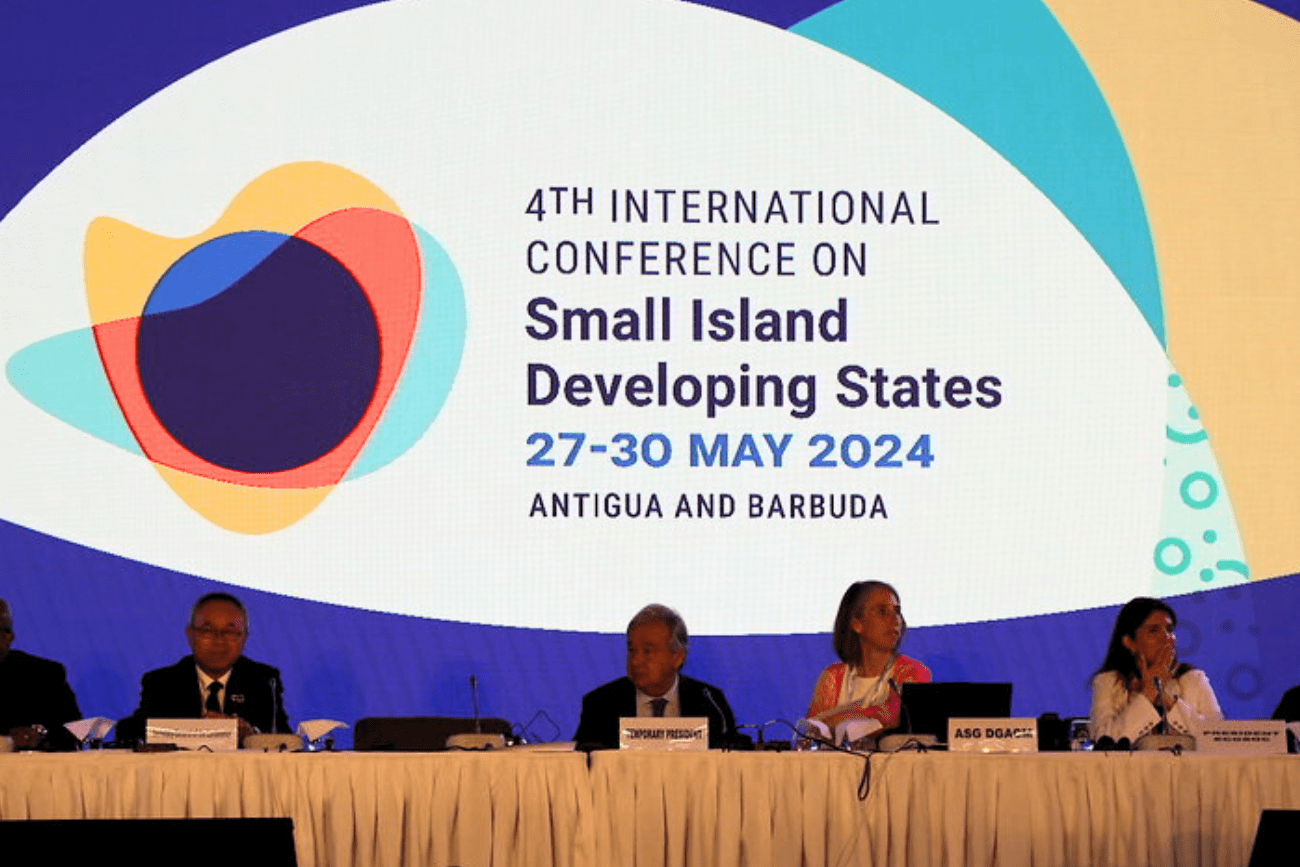Resilient Prosperity: Navigating the Complexities of SIDS in a Changing World

The World Food Forum (WFF) is pleased to share an insightful opinion piece from Chemora McKnee, a Youth Policy Board (YPB) member from St. Vincent and the Grenadines, who attended the Fourth International Conference on Small Islands Developing States (SIDS). Chemora shares her firsthand experiences and reflections on the event’s key discussions.
Chemora McKnee:
“The seas rise, our debts mushroom, our people struggle, and we are told to keep heart, to bear up. It's a story that predates the First International Conference on SIDS. But a better world is possible. It is our intrinsic belief that we can, in fact, right our sails and create a world where the idea of our resilient development is not farfetched. Perhaps the difficulty, as economist John Maynard Keynes puts it, ‘...lies not so much in developing new ideas but escaping from old ones’. The path to real change can seem almost hopeless, especially when this intractable system seems so fixated on maintaining itself. Even when the socio-economic imperative to act seems certain, we hesitate on political expediencies.”
These are the resounding words shared by the Honourable Fiamē Naomi Mataʻafa, Prime Minister of Samoa and the Chair of the Alliance of Small Island States (AOSIS), at the opening ceremony for the Fourth International Conference on Small Island Developing States (SIDS4), held from 27 - 30 May 2024, in St. John's, Antigua and Barbuda.
The SIDS4 conference aimed to assess the ability of SIDS to achieve sustainable development, including the 2030 Agenda and its Sustainable Development Goals (SDGs). The climatic shocks, coupled with mounting debt, are complex challenges that Honourable Fiamē alluded to; however, the urgent need for action requires both systemic and mental shifts to effect positive and impactful change.
Under the theme of “Charting the Course Toward Resilient Prosperity”, over 200 side events were held in partnership with governments, international organizations, academia, the private sector, non-profits, community and advocacy groups among others.
The Food and Agriculture Organization of the United Nations (FAO) and the Caribbean Community (CARICOM) also organized a side event titled “Delivering Concrete Solutions for SIDS through the FAO Global Roadmap: Achieving SDG2 without Breaching the 1.5°C Threshold”.
As a WFF YPB member, I was honored to be invited as a panelist alongside Mary Lou Valdez, Deputy Director of Pan American Health Organization (PAHO) and Maximo Torero Cullen, Chief Economist of FAO, with Angélica Jácome Daza , Director of the Office of SIDS, Least Developed Countries (LDCs), and Land Locked Developing Countries (LLDCs) at FAO, as the moderator. The session began with Mr. Torero presenting the FAO Global Roadmap to achieve SDG2 without breaching the 1.5°C threshold, followed by a discussion on how the framework can support SIDS and engage partners to maximize the positive impacts of global initiatives at the local level.
The roadmap aligns with SIDS' call for a secure future, as outlined in the Antigua and Barbuda Agenda for SIDS – a Renewed Declaration for Resilient Prosperity. Although currently a global vision, the roadmap is a step toward implementing it at national and regional levels.
As a young woman from the island of St. Vincent & the Grenadines, I find myself uniquely positioned to speak on matters at the intersection of youth and food security, which leads me to focus on the particularities of SIDS and how youth in these regions can contribute. When discussing the unique challenges that SIDS face, we typically focus on climate shocks- weather events, land availability and high food import bills. However, I emphasized key cross-cutting accelerators that can help provide the biggest impact in managing youth challenges in SIDS. These include the limited availability of data, mobilizing resources and fostering strong partnerships.
I also used my opportunity as a panelist to underscore the activities and initiatives driven by the World Food Forum to implement some of the practical actions highlighted in the roadmap. I facilitated discussions under four categories: Education and Training, Policy Engagement and Advocacy, Innovation and Technology, and Community Engagement. These included the WFF’s work, including the Young Scientist Group, AgX Fair, Educators Network, WFF Transformative Research Challenge (TRC), Start-Up Innovation Awards (SIA), Local Action and Youth Policy Board.
In conclusion, the Fourth International Conference on SIDS underscored the critical need for urgent, unified action to address the multifaceted challenges. Through collaborative efforts, innovative solutions, and steadfast commitment, a resilient and prosperous future for SIDS is not just a hopeful vision but an achievable reality.




